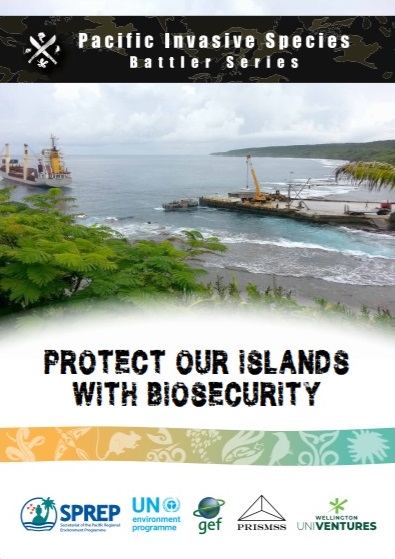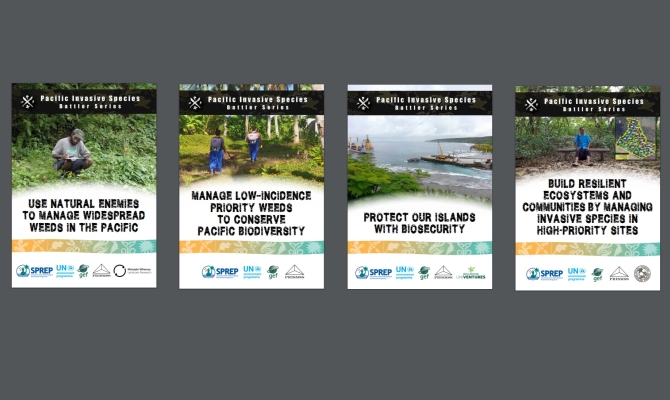Four new publications have been added to the ‘Pacific Invasive Battler Series,’ and are now available for free download from the Secretariat of the Pacific Regional Environment Programme (SPREP), to help Pacific practitioners, environmental managers, government and community members in specific areas of invasive species management.
Developed through the Pacific Regional Invasive Species Management Support Service (PRISMSS), the Battler Series is an important resource for those working to restore ecosystems and manage invasive species. It provides tested best practice approaches through step by step guidance, case studies and visual aid for those battling invasive species.
The series provides information and case-studies that can assist those working in the field and is written in a user-friendly way.
“Pacific communities, while separated by vast ocean space, share many things in common including a heavy reliance on the environment for food, shelter, and economic stability,” said Mr Bradley Myer, Regional Invasive Species Project Manager.
“The Battler Series is an important resource for sharing information and management techniques for invasive species that many islands have in common.”
The Pacific region is diverse in population and spans one third of the Earth’s surface. With around 30,000 islands, it is one of the world’s biodiversity hotspots and has a large number of species that can only be found in the Pacific. This makes the Pacific extremely vulnerable to the impact of invasive species, the largest cause of extinction of single-country endemic species in the region.
For small Pacific islands, invasive species also impact our economies, ability to trade, sustainable development, health, ecosystem services, and the resilience of our ecosystems to respond to natural disasters.
The four latest publications are: 1) Use natural enemies to manage widespread weeds in the Pacific; 2) Managing low-incidence priority weeds to conserve Pacific biodiversity; 3) Protect our islands with biosecurity; and 4) Build resilient ecosystems and communities by managing invasive species in high-priority sites.

There are now 15 publications in the Pacific Invasive Battler Series, and they are available for download on the Battler Resource Base.
The SPREP Invasive Species Team aims to provide technical, institutional, and financial support to regional invasive species programmes in coordination with other regional bodies. They coordinate PRISMSS, the Pacific Invasive Learning Network (PILN), a network for invasive species practitioners battling invasive species in Pacific countries and territories, and the Pacific Invasives Partnership (PIP), the umbrella regional coordinating body for agencies working on invasive species in more than one Pacific country.
For more information on the Battler Series or PRISMSS, please contact davidm@sprep.org
